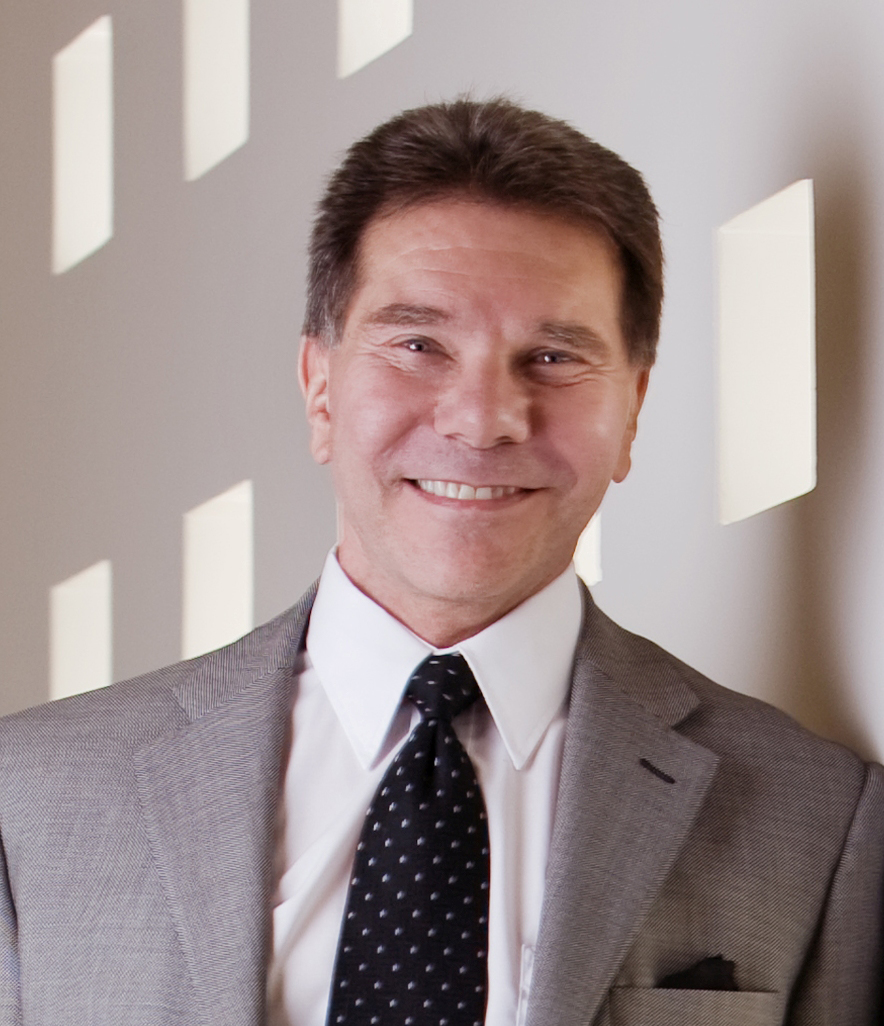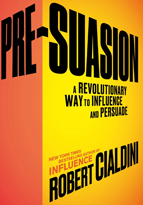Robert Cialdini

Expert in the fields of persuasion, compliance and negotiation
Topic Categories:
Fee Range: Contact Speaker Exchange Agency
- Dr. Robert Cialdini has spent his entire career researching the science of influence earning him an international reputation as an expert in the fields of persuasion, compliance, and negotiation.
- Harvard Business Review lists Dr. Cialdini’s research in “Breakthrough Ideas for Today’s Business Agenda.”
- Influence has been listed on the “New York Times Business Best Seller List.”
- Fortune Magazine lists Influence in their “75 Smartest Business Books.” CEO Read lists Influence in their “100 Best Business Books of All Time.”
*Fee ranges are presented as a guideline only. Speaker fees are subject to change without notice. For an exact quote, please contact your Speaker Exchange Agency representative.
Harvard Business Review lists Dr. Cialdini’s research in “Breakthrough Ideas for Today’s Business Agenda.” Influence has been listed on the “New York Times Business Best Seller List.”
Fortune Magazine lists Influence in their “75 Smartest Business Books.” CEO Read lists Influence in their “100 Best Business Books of All Time.”
Dr. Robert Cialdini has spent his entire career researching the science of influence earning him an international reputation as an expert in the fields of persuasion, compliance, and negotiation.
 His books including, Influence: Science & Practice, are the result of decades of peer-reviewed research on why people comply with requests. Influence has sold over 3 million copies, is a New York Times Bestseller and has been published in over 30 languages.
His books including, Influence: Science & Practice, are the result of decades of peer-reviewed research on why people comply with requests. Influence has sold over 3 million copies, is a New York Times Bestseller and has been published in over 30 languages.
Because of the world-wide recognition of Dr. Cialdini’s cutting edge scientific research and his ethical business and policy applications, he is frequently regarded as the “Godfather of influence.”
Dr. Cialdini received his Ph.D from the University of North Carolina and post doctoral training from Columbia University. He has held Visiting Scholar Appointments at Ohio State University, the University of California, the Annenberg School of Communications, and the Graduate School of Business of Stanford University. Currently, Dr Cialdini is Regents’ Professor Emeritus of Psychology and Marketing at Arizona State University.
Dr. Cialdini is CEO of INFLUENCE AT WORK; focusing on ethical influence training, corporate keynote programs, and the CMCT (Cialdini Method Certified Trainer) program.
Dr. Cialdini’s clients include such organizations as Google, Microsoft, Cisco Systems, Bayer, Coca Cola, KPMG, AstraZeneca, Ericsson, Kodak, Merrill Lynch, Nationwide Insurance, Pfizer, AAA, Northern Trust, IBM, Prudential, The Mayo Clinic, GlaxoSmithKline, Harvard University – Kennedy School, The Weather Channel, the United States Department of Justice, and NATO.
(Suggested length 90 minutes)
Dr. Robert Cialdini, author of the ground-breaking book, Influence, is your guide, translating the scientific research into practical business applications. His widely-acclaimed studies are highly instructive to those who want to be more influential.
Weaving compelling stories with evidence-based statistics makes this program memorable and immediately applicable.
Here, Dr. Cialdini identifies and explains the six universal principles of persuasion that move others toward yes. Participants receive answers to such questions as: What can we do to shorten the time required to develop and deepen relationships with our prospects, customers, and co-workers? How can we effectively establish our authority and trustworthiness with those we meet for the first time? After we have given, what words can we use to increase dramatically the likelihood that we will receive in return? When others are sitting “on the fence”, which principles of persuasion are most likely to spur them to act? And, which is the most underused, yet effective, principle of persuasion? In this program, Dr. Cialdini answers all these questions and more.
Used correctly and ethically, these scientifically-tested principles produce lasting relationships and strong, long-term change. When the science is available, why use anything else?
(45-90 minutes)
The author of the legendary bestseller Influence, social psychologist Robert Cialdini shines a light on effective persuasion and reveals that the secret doesn’t lie in the message itself, but in the key moment before that message is delivered.
What separates ordinary communicators from truly successful persuaders? Using the same combination of rigorous scientific research and accessibility that made his Influence an iconic bestseller, Robert Cialdini explains how to capitalize on the essential window of time before you deliver an important message. This “privileged moment for change” prepares people to be receptive to a message before they experience it. Optimal persuasion is achieved only through optimal pre-suasion. In other words, to change “minds” a pre-suader must also change “states of mind.”
In this program, Dr. Cialdini draws on his extensive experience as the most cited social psychologist of our time to illustrate how the Pre-Suasion process works and how it can be used in your organization. He explains the techniques a person can implement, ethically, to become more influential both professionally and personally. Altering a listener’s attitudes, beliefs, or experiences isn’t necessary. All that’s required is for a communicator to redirect the audience’s focus of attention before a relevant action.
By attending this program, participants will:
• Learn what pre-suasion does to make persuasion even more powerful.
• Learn how you can use pre-suasion ethically to be more persuasive.
• Learn how to recognize and deflect unwanted pre-suasion.
(45 – 75 minutes)
With The Power of WE, Robert Cialdini artfully braids science with meaningful and moving personal accounts to produce a set of compelling lessons for business success.
This unique presentation explores what scientific research demonstrates about the ability of certain relationships (labeled “We” relationships) to facilitate our goals. Dr. Cialdini skillfully interprets the implications of “We” relationships both inside and outside the organization. Audience members learn the answers to such questions as: What can change rivals to make them want to work together? What can make seemingly unrelated, angry people bond together to accomplish meaningful goals? What can make a negotiation more satisfying and come to fruition faster? What simple statement can lead to a “We” relationship? What simple request can do the same? And, how can this be
accomplished ethically and effectively in business settings? Dr. Cialdini explores these questions and more in this unique program.
What makes us a “WE”? The Power of WE shows how to develop, engage, and focus relationships for optimal working success.
(40 – 90 minutes)
It is through the influence process that we lead, generate, and manage change. Like most things, the process can be handled poorly or well. It can be employed to foster growth and to move people away from negative choices and in more positive directions, thereby creating the conditions for new opportunities. Or, it can be used clumsily, reducing the chance for genuine movement and, in the worst of cases, boomeranging into conflict and resentment.
As such, it is important for those wishing to lead effectively to understand fully the workings of the influence process. Fortunately, a vast body of scientific evidence now exists on how, when, and why people say yes to influence attempts. In his presentation, Dr. Robert Cialdini extracts from this formidable body of work the six universal principles of influence–those that are so powerful that they generate desirable change in the widest range of circumstances. The principles are:
• Reciprocation: People are significantly more willing to comply with requests (for favors, services, information, concessions, etc.) from a leader who has provided such things first.
• Commitment/Consistency: People are more willing to be moved by a leader if they see the change as consistent with a commitment they have previously and publicly made.
• Authority: The particular combination of expertise and trustworthiness renders a leader the most persuasive communicator science has ever uncovered.
• Social Proof: People are more willing to perform a recommended action if a leader provides evidence that many similar others are performing it.
• Scarcity: People find recommended opportunities more attractive to the degree that a leader can honestly position them scarce, rare, or dwindling in availability.
• Liking: People say yes to the leaders they like.
Dr. Cialdini’s presentation illustrates how these six principles have been and can be harnessed to meet specific influence objectives. Dr. Cialdini emphasizes the non-manipulative use of the principles so that those who are influenced feel personally committed to the new direction and to their relationship with the leader. It is only in this fashion that the influence process can be simultaneously effective, ethical, and enduring. And it is only in this fashion that it can enhance a lasting sense of partnership between those involved.
(60-90 minutes)
In today’s uncertain environment, the need for simultaneously effective and ethical influence is necessary, pertinent, and now more vital than ever to our success. During this profound presentation, Dr. Robert Cialdini briefly reviews six research-based universal principles of influence, but focuses on those principles that are most effective during conditions of uncertainty and that leaders can employ to bring about positive and lasting change among individuals located both inside and outside their organizations.
Dr. Robert Cialdini, author of the ground-breaking book, Influence, and coauthor of the New York Times best-seller, Yes! 50 Scientifically Proven Ways To Be Persuasive, is your guide in translating highly relevant but poorly-understood scientific research into practical business applications. His books have sold more than three million copies worldwide. Dr. Cialdini is the world’s leading authority on influence and his widely acclaimed studies are highly instructive to those who want to be more influential.
(60 minutes)
It is through the influence process that we generate and manage change. Like most things, the process can be handled poorly or well. It can be employed to foster growth and to move people away from negative choices and in more positive directions, thereby creating the conditions for new change opportunities. Or, it can be used clumsily, reducing the chance for genuine movement and, in the worst of cases, boomeranging into conflict and resentment.
In this presentation, Dr. Robert Cialdini first describes the six universal principles of influence—those that are so powerful that they generate desirable change in the widest range of circumstances. The principles are: Liking, Authority, Social Proof, Scarcity, Reciprocation, and Consistency. Dr. Cialdini’s presentation next focuses on how the first three of these principles have been and can be harnessed to meet specific, mutually beneficial objectives by building trust. Throughout, Dr. Cialdini emphasizes the ethical use of the principles so that those who are influenced feel personally committed to the change and come to trust (appropriately) that their advisor/partner will continue to counsel them correctly. It is only in this fashion that the influence process can be simultaneously effective, ethical,
and enduring. And, it is only in this fashion that it can enhance a lasting sense of partnership between those involved in the exchange.
(60 minutes)
Since publishing multiple books on the topic, Dr. Robert Cialdini has been frequently asked to speak to audiences about the principles of persuasion that scientific research indicates are most likely to spur others to change. In those presentations, something has emerged that invariably captures audience attention to a remarkable degree: If, while describing one or another of these psychological principles, Dr. Cialdini says, “Now, I’m going to give you something really small that you can do to make this principle work in your behalf,” the room changes immediately. Bodies incline forward, faces lift to the stage, and pens hover above notepads.
It’s understandable. Audience members are responding to an attractive return-on-investment proposition. It’s one that’s likely to be of enormous value in their increasingly time-challenged, busy lives—a minor investment of time or energy that will lead to disproportionate returns in all sorts of daily arenas. After all, to achieve most professional and personal goals, people need to be influential in their interactions with others; and reliable shortcuts in that pursuit are like found gold. In addition, these “small BIGs” are attractive because they require little expense or effort to implement—often involving nothing more than the change of a word or two in a communication—which makes them more likely (than big procedural changes) to be actually performed.
In this presentation, Dr. Cialdini focuses on a set of small alterations that individuals can make to their persuasive attempts that research shows are likely to produce significant increases in their persuasive success. In the process, he illustrates the four forms that “small BIGs” can take: small adjustments to words, actions, images, and environments that can all produce out-sized persuasive impact. Finally, he stresses how individuals can employ such adjustments not only effectively but ethically as well to ensure the cultivation and enhancement of long-term, mutually beneficial relationships.
Want to bring Robert Cialdini to your next event? Please tell us a little about your event, and we will get back to you shortly!




